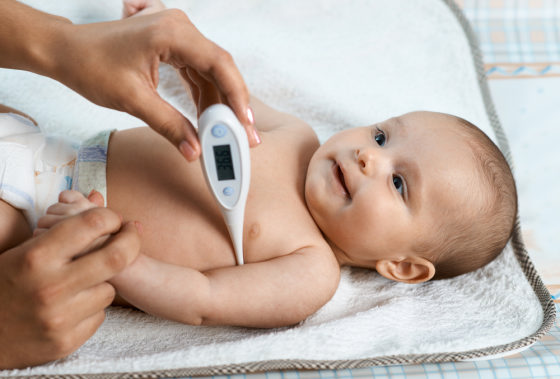Alert, Watery Ears in Children Due to Infection
Ear infections can occur at any age, although they are more common in children. If your child has runny ears, be aware of infections that need special treatment.
Children under the age of three (toddlers) are the group most at risk of developing watery ear infections. This is because their immune systems are still vulnerable and the Eustachian tubes in their ears are shorter and narrower than adults. Compared to babies who are breastfed, babies who are not breastfed tend to be more at risk of ear infections.
Recognize the Causes and Symptoms of Ear Infection
These runny ears can occur for a few moments to several days. The liquid comes from the eardrum which is infected and ruptures, causing holes. Watery ears in children can be caused by a number of things, such as viral or bacterial infections, allergies, sinus swelling, polyps, tonsils, or changes in air pressure. Watery ears in children due to infection, can cause symptoms such as:- Fever.
- Hearing disorders.
- Nausea.
- Feel unwell.
- Decreased appetite.
- Ear aches, buzzing, blocked, "full".
- Changes in behavior, such as being more fussy or crying often.
- Insomnia.
Handling runny ears due to ear infections
Treatment is given to treat watery ears due to infection, depending on the severity of the infection and the duration of the infection. The usual actions for doctors to treat watery ears are:Provision of pain medication
Ear infections can generally heal itself. Immune system or immune system can overcome some ear infections in children. However, pain relievers are generally needed such as paracetamol or ibuprofen to reduce fever while helping children feel more comfortable.
Additional inspection
If the doctor considers the condition of the infection to be quite severe, then the doctor may suggest examining ear fluid to determine the germ that causes the infection. Can also be done with a CT scan of the head to find out whether the infection has spread to other parts of the ear. Hearing tests may also need to be done.
Giving antibiotics
Some considerations for the use of antibiotics in ear infections include the age of children under 2 years and have a higher risk of complications, the infection is considered severe enough that does not subside after 2-3 days, doctors have confirmed that the infection is caused by bacteria, or if the child has a medical condition others that increase the risk of infection.
Medical procedure
Ear infections in children that occur repeatedly, or cause a buildup of fluid behind the eardrum that causes complications such as hearing loss, it may be necessary to myringotomy to remove ear fluid.




Comments
Post a Comment